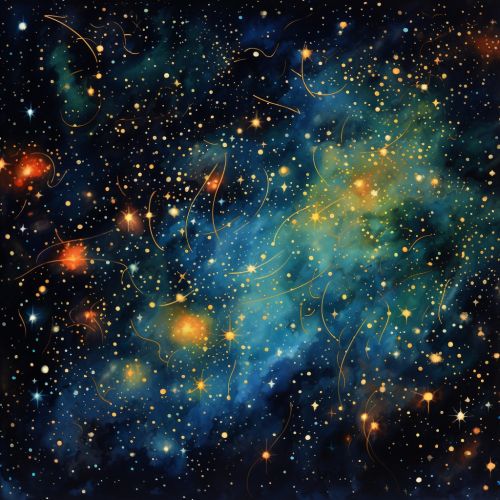Cosmology
Overview
Cosmology is the scientific study of the large scale properties of the universe as a whole. It endeavors to use the scientific method to understand the origin, evolution and ultimate fate of the entire Universe. Like any field of science, cosmology involves the formation of theories or hypotheses about the universe which make specific predictions for phenomena that can be tested with observations. Depending on the outcome of the observations, the theories will need to be abandoned, revised or extended to accommodate the data.
The prevailing model of cosmology, known as the Big Bang, posits that the universe expanded from a hot, dense state around 13.8 billion years ago. This theory is supported by a range of observations, including the cosmic microwave background and the distribution of galaxies in space.


Historical Cosmology
The earliest form of cosmology appears in the nature philosophies of ancient civilizations, such as the Vedic cosmology of India and the cosmogonies of ancient Greece. These early cosmologies were all geocentric models, with the Earth at the center of the universe. The introduction of the concept of a heliocentric universe by Copernicus in the 16th century was a pivotal moment in the history of cosmology.
Modern Cosmology
Modern cosmology began with the development of general relativity by Albert Einstein and the observational confirmation of the expansion of the universe by Edwin Hubble. Since then, cosmology has expanded to include the study of the large scale structure of the universe, the formation and evolution of galaxies, and the distribution of cosmic microwave background radiation.
Cosmological Models
There are various models of the universe that have been proposed by cosmologists. The most widely accepted model is the Big Bang theory, which describes the universe as expanding from a hot, dense state. Other models include the Steady State theory, the Oscillating Universe theory, and the Multiverse theory.
Cosmological Observations
Observations in cosmology primarily involve the measurement of the distribution of galaxies in the universe, and the observation of the cosmic microwave background. These observations are used to test predictions made by cosmological models, and to determine the parameters of these models.
Future of Cosmology
The future of cosmology lies in the refinement of existing theories and the development of new ones. This will be driven by the acquisition of new data from observations, and the development of new technologies for making these observations.
